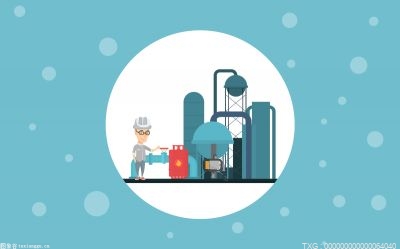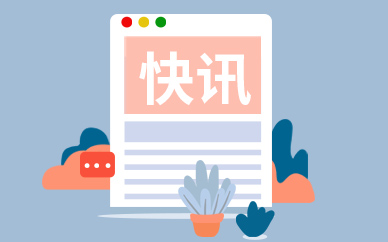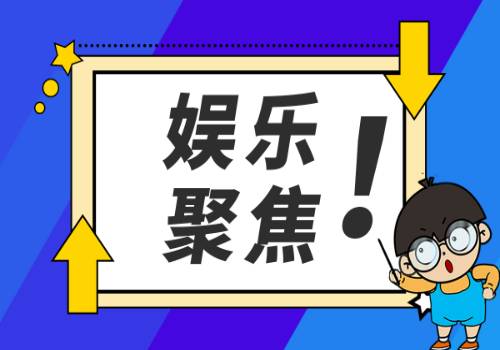Asia Pacific Business Review(SSCI)近期将征集稿件以组织一期专刊,主题为新冠疫情与去全球化背景下的亚太地区全球供应链可持续性。全球供应链的可持续性主要分为三个维度,分别是经济可持续性、环境可持续和社会可持续性。经典的“三底线(triplebottom-line)”理论强调,具有可持续性的全球供应链在促进宏观经济发展、帮助企业业绩增长的同时,也能保护环境、推动社会公平,使得不同代际或不同社会群体能够比 较平等的分享全球供应链发展带来的好处并分担其成本。近年来,去全球化的趋势越来越明显,叠加三年多疫情的冲击,亚太的全球供应链深受影响。利益相关方,包括亚太各经济体政府、区域内外的供应链“链头”企业( lead firms),以及区域内的供应商、 劳动者、消费者等也都主动或被动的进行了回应。那么,去全球化、疫情,亚太全球供应链上利益相关方的回应会对亚太地区全球供应链的可持续性造成什么后果呢?这些后果又是如何具体产生的呢?为什么会造成这样的后果呢?华南理工大学印巴研究中心、华南理工大学广东社会保障研究中心与华南理工大学公共管理学院将于2023年6月17日举办一期工作坊,邀请有兴趣的国内外学者与会,共同探讨这些问题。Asia Pacific Business Review的主编和专刊的客座编辑也将参会。专刊编辑希望借助此次工作坊活动,筛选有潜力的选题,并由与会专家和编辑提出建设性的研究和写作建议,最终选出一组优秀研究成果在专刊上发表。工作坊采用线上与线下混合方式,线下活动将在广州举办,有意参加的学者请于2023年6月1日前将选题题目和摘要发至jhlong@scut.edu.cn。如您的选题通过筛选,您将收到参加工作坊的正式邀请和详细日程通知。
 【资料图】
【资料图】
华南理工大学印巴研究中心
华南理工大学广东社会保障研究中心
华南理工大学公共管理学院
2023 年 4 月 5 日
附件:Asia Pacific Business Review Call for Papers: The COVID-19 pandemic, de—globalization, and sustainability of global supply chains in the Asia Pacific: challenges and opportunities
The COVID-19 pandemic, de-globalization, and sustainability of global supply chains in the Asia Pacific: challenges and opportunities
Call for Papers, Asia Pacific Business Review
Guest Editors
Hailong Jia
School of Public Administration, South China University of Technology, Guangzhou, ChinaMingwei Liu
School of Management and Labor Relations, Rutgers, The State University of New Jersey, New Brunswick, NJ, USA
Chris Rowley
Kellogg College, University of Oxford & Bayes Business School. City. University of London, UKIngyu Oh
Dept. of Global Engagement, Kansai Gaidai University, Osaka, Japan.
The idea of global supply chain sustainability is built on the triple-bottom-line (TBL) framework originally proposed by Elkington (1997) in the study of business strategies and later expanded in the research on global supply chains (Seuring and Müller 2008). The TBL framework emphasizes that sustainable supply chains should be able to maintain environmental quality and advance social justice, particularly the fair distribution of the benefits and costs of global supply chains among different social groups including workers and consumers, while promoting general economic development or generating profits for business organizations (Seuring and Müller 2008; Beske and Seuring 2014; Rajeev et al. 2017; Khan et al. 2021).
When seen from macro perspectives, one of the most prominent grand theories that the study of global supply chain sustainability has engaged is neoliberalism, which advocates the importance of macro institutions such as free market, limited government intervention, and privatization (Friedman 1962). Neoliberalism has had great real-world impacts on the global economy in the past several decades, including both positive and negative influences on the economic, social, and environmental dimensions of sustainability (Harvey 2005). Its proponents argue that globalization driven by neoliberalism promotes economic efficiency for 3 individual firms, more efficient allocation of resources, faster macro-economic development, more employment and rising wages (Friedman 1962; Cowen 2012). Some of the critics of neoliberalism and modernisation theory, based on theories such as dependency and world systems, emphasize that countries at the core and at the peripheral are impacted differently by globalization (Stiglitz 2002). Some, drawing on institutional theory, argue that the economy, embedded in social institutions other than the economic ones, should not and could not develop unfettered (Bruton, Ahlstro, and Li 2010).
As such, globalization does not necessarily increase economic efficiency, particularly for some developing countries, and neoliberalism exacerbates income inequality, poor working conditions and environmental degradation (Stiglitz 2002; Bruton, Ahlstro, and Li 2010). Many empirical studies have found positive impacts of neoliberal globalization such as better performance for multinationals in the Global North and social upgrading such as economic development, increased wages, improved working conditions and improved access to social services in the Global South (Robinson and Acemoglu 2001; Rodrik 2006), particularly when certain conditions such as active government orchestration and active stakeholder participations, are met (Rodrik 2006). However, attention in recent years has been paid more to the dark side of neoliberalism. In particular, as many Western firms build their global supply chains to gain economic competitiveness, negative impacts of neoliberal globalization such as economic stagnation, environmental degradation and sweat-shop proliferation in the Global South have not only been found by academic studies but also caught public attention (Rajeev et al. 2017).
When narrowing down to firm-level strategies and practices in global supply chains and the initiatives or responses of other actors, the corporate social responsibility (CSR) literature stands out in the study of global supply chain sustainability. This literature has drawn on a number of theoretical perspectives. The most prominent one is stakeholder theory that suggests businesses have economic, environmental and social responsibilities towards a range of stakeholders, including employees, customers, suppliers and local communities, and these 4 stakeholders have rights to take active roles to improve the sustainability of global supply chains (Freeman 1984; Freeman and Reed 2014). In line with this theory, the United Nations (UN) Sustainable Development Goals (SDGs) (2015) has most loudly called on all stakeholders around the world to take actions to promote sustainable global supply chains. This theory particularly provides a foundation for the social and environmental aspects of the TBL framework. Another theory that the CSR literature and other related studies often draw on is institutional theory. It emphasizes that behaviors of businesses and other actors are shaped by formal institutions such as international treaties, domestic laws and codes of conduct and informal norms such as local cultures and traditions (Searle 2010). More business-centric theories such as resource-based competitiveness theory pay more attention to how businesses could derive competitive advantages from its unique resources and capabilities useful in the TBL framework (Barney 1991; Singh and Chakrabarty 2020).
Empirical studies have documented CSR strategies and practices adopted by multinationals and local suppliers such as reporting and participating in auditing programs and certification programs (Bartley 2007; Bhagwati 2007; Tilling & Tilt 2018; Kuruvilla, 2021), international treaties promoted by the Global North governments (Ryngaert 2018) and accepted by their Global South counterparts (Bahoo, Alon, and Paltrinieri 2020), movements, norms and codes initiated and advocated by NGOs and consumers (Newell 2008; Bartley et al. 2015; Aghazadeh 2018). These studies found that most firm CSR strategies and practices, international coordination and legal regulation, and society/consumer participation have very limited effects. Their impacts on economic sustainability such as local supplier performance are generally positive (Aitken and Harrison 1999), but they have mixed effects on local economic development (Tortanier 2007). They have little positive influence on environmental sustainability such as general environmental protection (Brennan et al. 2011), historical development of environmental sustainability of businesses (Kolk 2016), and green capacity of multinationals (Maksimov, Wang, and Yan 2019). Regarding social sustainability such as general social responsibility of business organizations (Bird and Smuchker 2007), working conditions (Kuruvilla et al. 2020; Kuruvilla 2021; Zhang et al. 2022), gender equality at 5 workplaces (Davis and Poole 2020), diversity management (Perri and Peruffo 2016)), and poverty reduction (Bhagwati 2007), however, their effects are mixed. The studies focusing on workplace health and safety issues have revealed the ineffectiveness of stakeholder responses to negative impacts of globalization in the Global South, particularly in some Asian countries (Nazzal and Stringer 2017).
The brief review above suggests that scholars not only debate on whether to follow neoliberalism to organize and govern global supply chains but also have trouble identifying effective means to motivate stakeholders to more properly address the sustainability issues in global supply chains. The COVID-19 pandemic, together with de-globalization started earlier than the pandemic, has further complicated the situation. Both the pandemic and deglobalization have greatly disrupted supply chains in the Asia Pacific region and the rest of the world (Enderwick and Buckley 2020). Cancelled flights, travel restrictions, congested ports and sky-rocketing shipping costs shocked or even stopped supply chains in the pandemic (Sajjad 2020). National barriers to global trade and investment erected in the process of deglobalization bring great risks to supply chains particularly in the Asia Pacific region (Handfield, Graham, and Burns 2020). Not only China but also countries such as Japan and South Korea in the Asia Pacific region have engaged substantially in restrictive measures on trade, investment and technology transfer. The rising geopolitical tensions in the Asia Pacific region and the trend of de-globalization are closely intertwined. Geopolitical considerations are even more immediate drivers behind measures disrupting supply chains in the region.
Stakeholders of global supply chains have adopted various coping strategies and practices in response to the pandemic and de-globalization, but their impacts on the sustainability of global supply chains in the Asia Pacific region are unclear. While a few studies have started to probe issues concerning the influence of the COVID-19 pandemic and/or de-globalization on global supply chains, the responses of various stakeholders and their impacts (Handfield, Graham, and Burns 2020; Contractor 2021; Curran and Eckhardt 2021; Sajjad 2021; Witt et al. 2021), they are rather scattered or have not focused on the Asia Pacific region.
In the Asia Pacific region, the economic aspects of global supply chain sustainability have been deeply impacted by the pandemic and de-globalization. The pandemic exposes the fragility of current supply chains in the most extreme manner (Handfield, Graham, and Burns 2020). Global outsourcing and lean-based inventory management, which helped retailers and manufacturers succeed economically in the past, have proved to be fatal to supply chain sustainability in the pandemic (Sajjad 2021). Instead, near-sourcing, buy-local, multiple logistic options, redundant capacity building become important for the resilience of supply chains (Sajjad 2021). Moving supply chains out of certain countries or regions, although not economically cost-effective, has become essential for maintaining supply chain sustainability, but it takes time (Curran and Eckhardt 2021). Particularly for multinationals which have their supply chains embedded in China’s economy, managing legal and geopolitical risks is a major concern (Witt et al. 2021). The pandemic and de-globalization may also present opportunities for supply chains in the Asia Pacific region. For countries which have better public health infrastructure and management, suppliers there can take advantage of the stoppage of supply chains elsewhere and fill the gaps (Handfield, Graham, and Burns 2020). De-globalization targeting certain countries such as China and Russia may also strengthen supply chains between the United States and its close allies in the region such as Japan, Australia and South Korea (Yellen 2022) and boost the economies in Southeast Asian and South Asian countries such as Vietnam, Malaysia and the Philippines (Contractor 2021).
The impacts of the pandemic and de-globalization on the environmental and social aspects of supply chain sustainability in the Asia Pacific region are also mixed. Workers in certain businesses such as airlines, restaurants and hotels are hit hardest as they face reduced pay or even layoffs in the pandemic due to social distancing and lock-downs (Handfield, Graham, and Burns 2020; Gorynia et al. 2022). Multinationals from developed countries within and outside the region may replace their suppliers in developing countries in the region with local suppliers or suppliers in countries closer, both geographically and politically, to developed markets (Enderwick and Buckley 2020), which will result in order disappearance, factory closures and mass layoffs in these countries. The employment, livelihood and social wellbeing of these 7 workers become the social collateral damages of the pandemic and de-globalization. But not all developing countries in the region would experience negative social consequences. Supply chains may speed up their re-organization and relocation, escaping China and moving into Southeast or South Asian countries (Contractor 2021). This would create jobs and potentially boost social development in those countries. In the environmental domain of supply chain sustainability, the pandemic and de-globalization may appear to have positive impacts in the region in the short run (Sarkis 2021). For instance, relocation of production facilities from Asia to other parts of the world reduces pollution in the region; and less consumption of natural resources and less green-house gas emission during the pandemic certainly improve our environment, although a post-pandemic rebound effect is expected as countries in the region begin to focus on economic recovery after they ease their pandemic measures (Hanna, Xu, and Victor 2020; Sarkis 2021).
The objective of this special issue is to consolidate and advance the research on the sustainability of global supply chains in the Asia Pacific region in the context of the COVID- 19 pandemic and de-globalization. By far, the pandemic has dragged on for more than three years, and de-globalization has progressed in earnest for about five years if we count the beginning of the U.S.-China trade war in 2018as the start. We should and are able to more thoroughly investigate into and reflect on the responses taken by various stakeholders and their impacts on the triple bottom lines of global supply chains in the region.This call for papers aims to invite both theoretical and empirical studies that investigate and analyze the challenges and opportunities brought about by the pandemic and de-globalization for sustainability of global supply chains in the Asia Pacific region, the responses taken by stakeholders of global supply chains and their impacts on the economic, social, and environmental aspects of supply chain sustainability in the region.
Suggested research questions are listed below. However, we also welcome papers that address questions not on the list but are consistent with the themes outlined in this call for papers.
●What are the impacts of the pandemic on the economic sustainability of global supply chains in the Asia Pacific region? Do they vary across countries in the region due to different pandemic responses of national or local governments? If yes, how? How are lead firms of global supply chains in the region, such as those in Japan, South Korea, Australia, and New Zealand, affected by the pandemic, and what are the consequences for the economic sustainability of their suppliers in the region? What are the coping strategies and practices adopted by lead firms and suppliers in the region, and how effective are they in sustaining operations of supply chains? Has any supply chain relocation happened within the region or between the region and the rest of the world because of the pandemic? If yes, what are the patterns? And what are the implications for the economic development of the counties in the region where supply chains leave or come?
●What are the impacts of the pandemic on the social sustainability of global supply chains in the Asia Pacific region? As supply chains may have relocated, contracted or even expanded in the pandemic, what are the impacts on employment and working conditions in different countries in the region? How are different groups of supplychain-related workers economically, physically, and psychologically impacted by the pandemic and what are their coping strategies? What measures have the governments taken to help the affected workers and what are their effects? How have the social welfare systems performed in helping the supply-chain-related workers in different countries in the region during the pandemic? Has private regulation of labor standards in global supply chains adapted its approaches and practices to better protect workers’ rights? If so, how?
●What are the impacts of the pandemic on the environmental sustainability of global supply chains in the Asia Pacific region? Has the environment, particularly air pollution and greenhouse gas emission, in different countries in the region improved due to supply chain stoppages and other coping practices of supply chains? How are these impacts received by the governments in the region? What are the impacts on the 9 renewable energy industries in the region? Have businesses in global supply chains in this region changed their energy strategies and practices? What are the responses of different stakeholders in the region to the increase of medical waste brought by the pandemic? As some countries in the region have eased their responding measures to the pandemic, are there any rebound effects on the environment?
●Is de-globalization resulting in supply chain outflows in some countries in the Asia Pacific region? If so, do the outflows have a comparable impact on supply chain sustainability across these countries? What are the differences if there are any? What are the impacts of countermeasures taken by the governments in the region? How have other actors in the region who have been negatively affected by the outflows of global supply chains , particularly suppliers, workers, and social groups, responded? And how effective are these responses in terms of maintaining global supply chain sustainability?
●Are there any developing countries in the region benefiting from the relocation of global supply chains? If so, what are the benefits in terms of economic, social and environmental sustainability of global supply chains in these countries? How do governments, firms, workers, and social groups in the developing countries in the region respond to the relocation of global supply chains to reap the benefits? And to what extent are their responses effective?
●Do the pandemic and de-globalization contribute to the enhancement of the economic, social, or environmental sustainability of global supply chains in some of the developed countries within the region? If the answer is affirmative, what specific improvements can be identified? How do multinationals/lead firms in these countries respond to the pandemic and de-globalization? Are there any similarities or differences in their responses? What are the consequences of these responses for the three dimensions of sustainability of their supply chains?
●The three dimensions of TBL may have inherent tensions (Singh 2021). The achievements in one dimension may be made at the expense of the other one or two 10 dimensions. Has the pandemic or de-globalization intensified or lessoned these tensions in global supply chains in the Asia Pacific region? If so, how? And what efforts have the actors including governments, multinationals, suppliers, workers, and social groups taken to balance the different or even conflicting impacts of their responses to the pandemic or de-globalization on different dimensions of global supply chain sustainability?
We welcome papers from different theoretical perspectives and using different empirical methodologies (e.g., quantitative, qualitative, case-oriented or mixed methods). However, papers must be original studies that contribute to the advancement of existing knowledge and debates on the topic.
All papers will be reviewed in accordance with the APBR normal review processes. Manuscripts should be formatted in accordance with the APBR publication guidelines and all the required content and structure – please look at the website.The proposed timeline for the special issue is:
Submission deadline: 15 October 2023
Revised article deadline (first round): 1 March 2024
Revised article deadline (second round):1 October 2024
Deadline to the publisher: 15 December 2024
References
Aghazadeh, N. 2018. “Promoting Labour Standards in Global Supply Chains Through Consumers’ Choice: Is Social Labelling Effective?” In Labour Standards in International Economic Law, edited by Henner Gött, 355-378. Cham: Springer.
Aitken, B. J., and A. E. Harrison. 1999. “Do Domestic Firms Benefit from Direct Foreign Investment? Evidence from Venezuela.” American Economic Review 89(3): 605-618. Allison, G. 2017. Destined for War: Can America and China Escape Thucydides"s Trap? Houghton Mifflin Harcourt.
Bahoo, S., I. Alon, and A. Paltrinieri. 2020. “Corruption in International Business: A Review and Research Agenda.” International Business Review, 29(4): 101660.
Barney, J. 1991. “Firm resources and sustained competitive advantage.” Journal of Management 17(1): 99-120.
Bartley, T. 2007. “Institutional Emergence in an Era of Globalization: The Rise of Transnational Private Regulation of Labor and Environmental Conditions.” American Journal of Sociology 113(2): 297–351.
Bartley, T., S. Koos, H. Samel, G. Setrini, and N. Summers. 2015. Looking behind the Label: Global Industries and the Conscientious Consumer. Indiana University Press.11
Beske, P., and S. Seuring. 2014. “Putting Sustainability into Supply Chain Management.” Supply Chain Management 19(3): 322-331.
Bird, F., and J. Smucker. 2007. “The Social Responsibilities of International Business Firms in Developing Areas.” Journal of Business Ethics 73(1): 1-9.
Brennan, L., W., J. M. Binney, and N. Lancaster. 2011. “Implementation of Environmental Sustainability in Business: Suggestions for Improvement.” Australasian Marketing Journal 19(1): 52-57.
Bruton, G. D., D. Ahlstro, and H. Li. 2010. “Institutional Theory and Entrepreneurship: Where Are We Now and Where Do We Need to Move in the Future?” Entrepreneurship Theory and Practice 34(3): 421–440.
Contractor, F. J. 2021. “The World Economy Will need even more Globalization in the Post—pandemic 2021 Decade.” Journal of International Business Studies 53(1): 156-171. Cowen, T. 2012. “The New Economic Geography, Now Middle-aged.” The Review of International Economics 20(4): 809-817.
Curran, L., and J. Eckhardt. 2021. “Why COVID-19 Will Not Lead to Major Restructuring of Global Value Chains.” Management and Organization Review 17(2): 407-411.
Davis, A., and J. Poole. 2020. “Can Multinational Firms Promote Gender Equality? The Role of Labour Mobility.” Transnational Corporations 27(3): 157-181.
Elkington, J. 1997. Cannibals With Forks: The Triple Bottom Line of 21st Century Business. Capstone: Oxford.
Enderwick, P., and P. J. Buckley. 2020. “Rising Regionalization: Will the Post-COVID-19 World See a Retreat from Globalization?” Transnational Corporations Journal 27(2): 99- 112.
Fortanier, F. 2007. “Foreign Direct Investment and Host Country Economic Growth: Does the Investor’s Country of Origin Play a Role.” Transnational Corporations 16(2): 41-76. Freeman, R. E. 1984. Strategic Management: A stakeholder approach. Pitman.
Freeman, R. E., and D. Reed. 2014. “Stakeholder Theory: The State of the Art.” In Cambridge Handbook of Institutional Investment and Fiduciary Duty. Edited by Hawley, J. P., G. F. Andreas, K. L.Hoepner, J. S. Johnson, and E. J. Waitzer, 3-27. Cambridge: Cambridge University Press.
Friedman, M. 1962. Capitalism and Freedom. University of Chicago Press.
Gereffi, G., J. Humphrey, and T. Sturgeon. 2005. “The Governance of Global Value Chains.” Review of International Political Economy 12(1): 78-88.
Gorynia, M., J. Nowak, P. Trąpczyński, and R. Wolniak. 2022. “Globalization in a COVID-19 Afflicted World.” In International Business in Times of Crisis: Tribute Volume to Geoffrey Jones (Progress in International Business Research, Vol. 16. Edited by van Tulder, R., A. Verbeke, L. Piscitello, and J. Puck, 379-395. Bingley: Emerald Publishing. Handfield, R. B., G. Graham, and L. Burns. 2020. “Corona Virus, Tariffs, Trade Wars and Supply Chain Evolutionary Design.” International Journal of Operations & Production Management 40(10): 1649-60.
Hanna, R., Y. Xu, and D. G. Victor. 2020. “After COVID-19, Green Investment Must Deliver Jobs to Get Political Traction.” Nature 582(7811): 178-180. 12
Harvey, D. 2005. A Brief History of Neoliberalism. Oxford University Press.
Hayton, B. 2020. The Invention of China. Yale University Press.
Kaplan, R. D. 2014. Asia"s Cauldron: The South China Sea and the End of a Stable Pacific. Random House.
Khan, S. A. R., Y. Zhang, H. Golpira, A. Sharif, and A. Mardani. 2021. “A State-of-the-Art Review and Meta-Analysis on Sustainable Supply Chain Management: Future Research Directions.” Journal of Cleaner Production 278 (January): 123357.
Kolk, A. 2016. “The Social Responsibility of International Business: From Ethics and the Environment to CSR and Sustainable Development.” Journal of World Business 51(1): 23-34.
Kuruvilla S. 2021. Private Regulation of Labor Standards in Global Supply Chains. Ithaca: Cornell University Press.
Kuruvilla, S., Mingwei Liu, Chunyun Li, and Wansi Chen. 2020. “Field Opacity and PracticeOutcomes Decoupling: Private Regulation of Labor Standards in Global Supply Chains.” Industrial and Labor Relations Review 73(4): 841-872.
Maksimov, V., S. L. Wang, and S. Yan. 2019. “Global Connectedness and Dynamic Green Capabilities in MNEs.” Journal of International Business Studies 53: 723-740.
Martinez-Alier, J., R. Muradian, and M. O"Connor. 2010. Ecological Economics From the Ground Up. Routledge.
Nazzal, S., and C. Stringer. 2017. The Rana Plaza Tragedy: Corporate Social Responsibility and Workers" Rights in Bangladesh"s Garment Industry. London: Taylor & Francis.
Newell, P. 2008. “Civil Society, Corporate Accountability and the Politics of Climate Change.” Global Environmental Politics 8(3): 122-153.
Perri, A., and E. Peruffo. 2016. “Knowledge Spillovers from FDI: A Critical Review from the International Business Perspective.” International Journal of Management Reviews 18(1): 3-27.
Rajeev, A., R. K. Pati, S. S. Padhi, and K. Govindan. 2017. “Evolution of Sustainability in Supply Chain Management: A Literature Review.” Journal of Cleaner Production 162 (September): 299-314.
Robinson, J. A., and D. Acemoglu. 2001. “Inefficient Redistribution.” The American Political Science Review 95(3): 649-661.
Rodrik, D. 2006. “Growth Strategies.” Journal of Economic Perspectives 20(1): 45-66.
Ryngaert, C. 2018 “Accountability for Corporate Human Rights Abuses: Lessons from the Possible Exercise of Dutch National Criminal Jurisdiction over Multinational Corporations.” Criminal Law Forum 29: 1–24.
Sarkis, J. 2021. “Supply Chain Sustainability: Learning from the COVID-19 Pandemic.” International Journal of Operations & Production Management 41(1): 63-73.
Sajjad, A. 2021. “The COVID-19 Pandemic, Social Sustainability and Global Supply Chain Resilience: A Review.” Corporate Governance 21(6): 1142-1154.
Searle, J. R. 2010. “The institutional structure of social norms.” Journal of Institutional Economics 6(1): 5-18.13
Seuring, S., and M. Müller. 2008. “From a Literature Review to a Conceptual Framework for Sustainable Supply Chain Management.” Journal of Cleaner Production 16(15): 1699- 1710.
Singh, J. 2021. “Tensions in corporate social responsibility and sustainability: An analysis of trade-offs and synergies.” Journal of Business Research 123: 680-690.
Singh, P. J., and A. Chakrabarty. 2020. “Resource-based competitiveness and corporate sustainability performance: A review and synthesis of literature.” Business Strategy and the Environment 29(3): 1212-1231.
Standing, G. 2011. The precariat: The new dangerous class. Bloomsbury Publishing.
Stiglitz, J. 2002. Globalization and Its Discontents. W.W. Norton & Company.
Tilling, M. V., and C. A. Tilt. 2018. “The effectiveness of stakeholder engagement in sustainability reporting assurance.” Journal of Business Ethics 149(3): 537-552.
United Nations. 2015. Addis Ababa Action Agenda on Financing for Development. New York, U.S.: United Nations.
Yellen. J. 2022. ‘Transcript: US Treasury Secretary Janet Yellen on the next Steps for Russia Sanctions and “friend-Shoring” Supply Chains’ (Atlantic Council, 13 April 2022)
Zhang, Huirong, Mingwei Liu and S. Kuruvilla. 2022. “Implementation and Effects of the Private Regulation of Labor Standards in Global Supply Chains.” Social Science Journal 2022(2): 141-154.
Witt, M. A., P. P. Li, L. Välikangas, and A.Y. Lewin. 2021. “De-globalization and Decoupling: Game Changing Consequences?” Management and Organization Review 17(1): 6-15.
信息来源:华南理工大学公共管理学院
编辑:彩虹校对:欣濛审核:光涵





























































